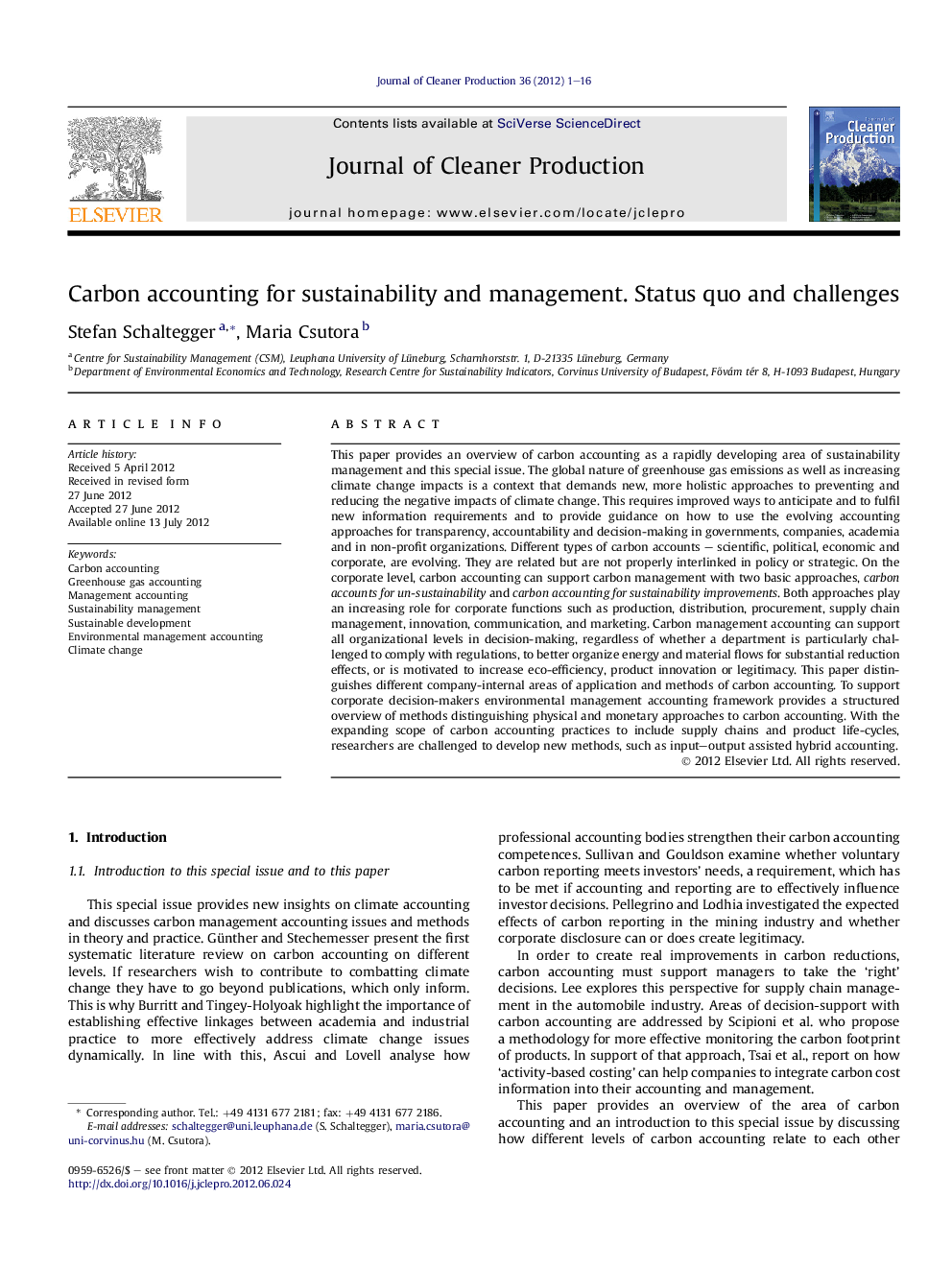| Article ID | Journal | Published Year | Pages | File Type |
|---|---|---|---|---|
| 1745627 | Journal of Cleaner Production | 2012 | 16 Pages |
This paper provides an overview of carbon accounting as a rapidly developing area of sustainability management and this special issue. The global nature of greenhouse gas emissions as well as increasing climate change impacts is a context that demands new, more holistic approaches to preventing and reducing the negative impacts of climate change. This requires improved ways to anticipate and to fulfil new information requirements and to provide guidance on how to use the evolving accounting approaches for transparency, accountability and decision-making in governments, companies, academia and in non-profit organizations. Different types of carbon accounts – scientific, political, economic and corporate, are evolving. They are related but are not properly interlinked in policy or strategic. On the corporate level, carbon accounting can support carbon management with two basic approaches, carbon accounts for un-sustainability and carbon accounting for sustainability improvements. Both approaches play an increasing role for corporate functions such as production, distribution, procurement, supply chain management, innovation, communication, and marketing. Carbon management accounting can support all organizational levels in decision-making, regardless of whether a department is particularly challenged to comply with regulations, to better organize energy and material flows for substantial reduction effects, or is motivated to increase eco-efficiency, product innovation or legitimacy. This paper distinguishes different company-internal areas of application and methods of carbon accounting. To support corporate decision-makers environmental management accounting framework provides a structured overview of methods distinguishing physical and monetary approaches to carbon accounting. With the expanding scope of carbon accounting practices to include supply chains and product life-cycles, researchers are challenged to develop new methods, such as input–output assisted hybrid accounting.
